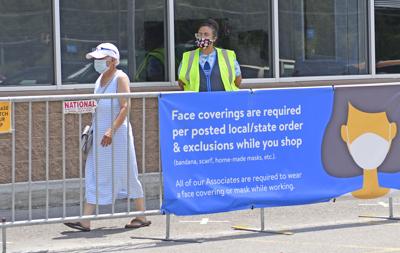
“What Are You Giving Up for Lent?”

“What are you giving up for Lent?” I’ve had several people ask me this question over the last week or so. I’ve never given up anything for Lent because I’ve never observed it. You may gasp at the idea that I skip this important practice. Why?
For starters, to give up something as an act of discipline is never a bad idea. I’ve known people to give up Facebook, cell phones, or red meat. It would do us good to lay off unhealthy food or deny ourselves from practices that may keep us from doing more important things. Even if you tie this denial to Lent, that’s not such a bad thing. If you use the six weeks before Easter to help you focus upon Christ’s sacrifice and resurrection, and you do so by giving something up, that’s not a bad thing. It could even accentuate your celebration of Christ’s resurrection. However, here’s why I don’t practice Lent.
The Britannica encyclopedia says, “Lent is a time of penitential preparation for Easter.” It was formalized for the Catholic church at the First Council of Nicaea in 325 AD and continues to be practiced today. It can involve forty days of fasting, though this fasting is often interpreted in a variety of ways (fasting from meat, fasting for five days a week, etc.), in commemoration of Jesus’ forty-day fast in the wilderness. It is specifically a time of preparation to celebrate Easter, but the part I have a problem with has to do with the word “penance.”
Penance is something a person can do (a work) to earn God’s grace and forgiveness. The Catholic church teaches that salvation is by grace, but not grace alone. It requires good works and penance to earn God’s “second plank” of justification that leads to eternal life and overcomes mortal sins. Acts of denial connected to Lent are considered works of penance that enable a Christian to gain, or earn, a right standing before God to overcome mortal sins that would otherwise cause them to go to hell.
The Bible is clear that good works have nothing to do with earning our justification because justification is entirely a work of God’s grace. Scriptures like Titus 3:5 and Ephesians 2:8-9 make it clear that works have nothing to do with our salvation. The Catholic church gets around these verses by saying we must experience two levels of justification and only the first level is attained by grace. The problem is that the Bible doesn’t support that teaching. For the Catholic church, however, the teaching of church leaders supersedes the Bible.
I love my Catholic friends, but I must strongly disagree with the Catholic church’s teaching on how someone becomes a Christian and their belief about the authority, or lack of authority, of the Bible as compared to the teaching of the church. To teach that salvation is somehow earned is a different gospel than what is presented in the Bible. Galatians 1:6-10 clearly warns us about accepting a different gospel.I don’t practice Lent because I don’t want to support a doctrine that says we somehow have something to do with earning our forgiveness and making ourselves acceptable to God. However, I respect people for their devotion to God and their desire to be right with God. I also think preparing ourselves to celebrate the resurrection of Jesus is a good thing and something we should consider. It would be good for us to use this forty-day period to prepare. What are some things you can do to highlight your Easter celebration that’s not tied to earning your salvation?

Happy Birthday
You May Also Like

Emotionally Healthy or Coronaweary?
July 30, 2020
No Fans?
September 28, 2020
